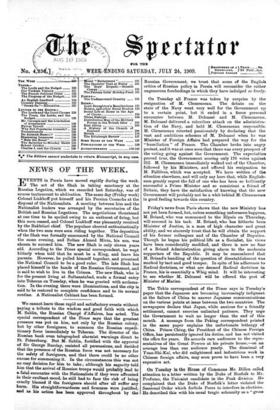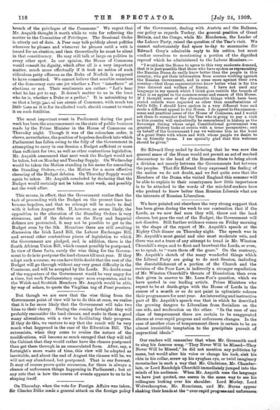On Tuesday in the House of Commons Mr. Dillon called
attention to a letter written by the Duke of Norfolk to Mr. Profumo, the Unionist candidate in the Peak division. He complained that the Duke of Norfolk's letter violated the Sessional Order which forbids Peers to interfere in elections. He described this with his usual tragic solemnity as D. "gross breach of the privileges of the Commons." We regret that Mr. Asquith thought it worth while to -vote for referring the matter to the Committee of 'Privileges. The Sessional Order is utterly out of date. A Peer may talk publicly about politics wherever he pleases and whenever he pleases until a writ is issued for an election, and then theoretically he roust be silent in that constituency. He may still talk at large on politics in every other spot. In our opinion, the House of Commons would consult its dignity, which after all is a very important matter, much: more effectually if it took no notice of such ridiculous .petty offences as the. Duke of Norfolk is supposed to have committed. We cannot believe that sensible members of the democracy care one .jot whether a Peer " interferes " at elections or not. Their sentiments are rather : "Let's hear what he has got to say. It doesn't matter to us in the least -who he is, whether a Duke or a pedlar," It is astonishing to us that a la. e'; use rionse of Commons, with much too little 4-Lane as it is :for its allotted work, should consent to waste it on such futilities.



































